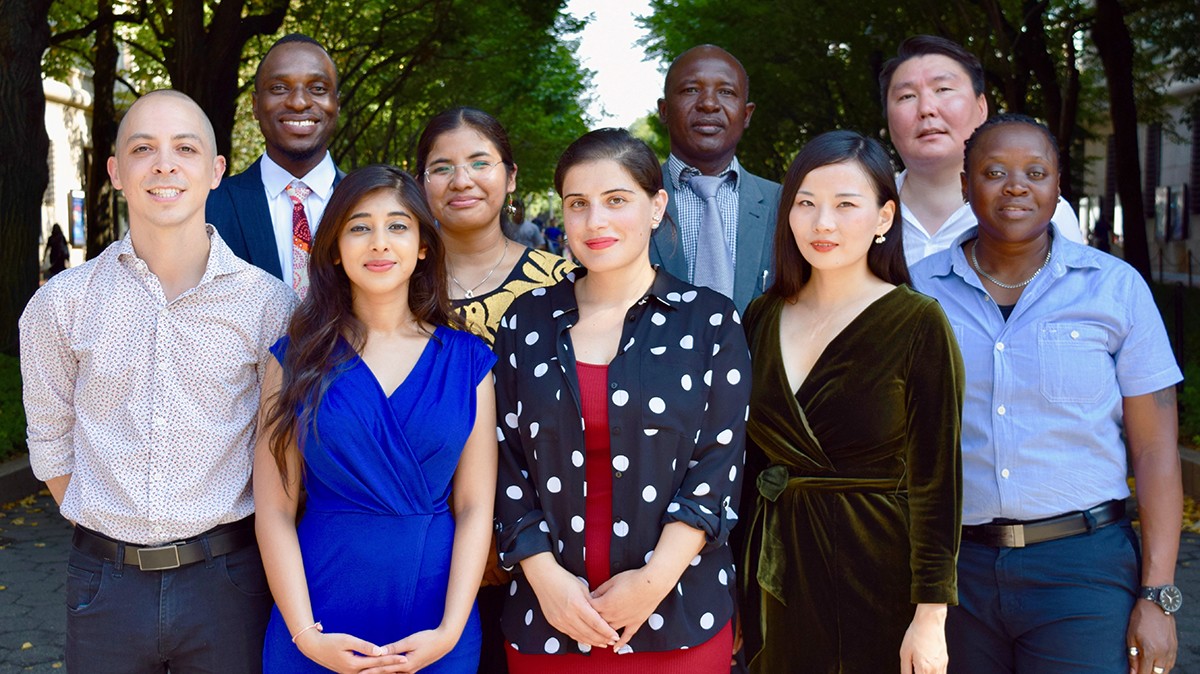Since its inception in 1989, Columbia's Human Rights Advocates Program (HRAP) has welcomed 328 advocates from 90 countries. This year’s cohort includes people working on LGBT rights in Argentina, China, Ghana and Uganda; indigenous peoples’ rights in Mexico and Russia; issues faced by survivors of torture in Chad; public health initiatives in South Africa; and the promotion of civic consciousness in Armenia.
By participating in skills-based workshops that are hosted by organizations such as Human Rights Watch and WITNESS, these advocates learn how to produce research, writing, documentation and video advocacy. For instance, Ssenfuka Joanita Warry of Freedom and Roam-Uganda, a 2019 HRAP advocate, is hoping to learn how to combat discrimination based on sexual orientation and gender identity in her country.
“The goal of the Human Rights Advocates Program is to help each advocate become even more effective,” said political scientist Andrew J. Nathan, who chairs the Institute for the Study of Human Rights’ advisory panel. “There is not enough room here to do justice to the scope of the work being performed by HRAP alumni. At Columbia, we have come to see that whatever they learn from us is dwarfed by the vast and rich body of learning that they bring to us from their work at home. Columbia faculty and students eagerly engage with the advocates during their short stay on campus, and we always learn.”
Some of the program’s illustrious alumni include Samuel Kofi Woods, known as the “father of human rights” in Liberia; Delphine Djiraibe, who was described as “one of Chad's most prominent human rights lawyers” by BBC News; and Alejandra Ancheita of Mexico, who won the 2014 Martin Ennals Award, which sometimes called the “Nobel Prize for human rights.”
“Working on the ground in adverse political and other stressful environments takes a toll,” said Karyn Kaplan, a 2009 HRAP advocate who is executive director of Asia Catalyst. “Being able to recharge in such a stimulating, dynamic and supportive environment, where each day we are learning from each other and being exposed to so many opportunities and new ideas, makes HRAP one of the best programs supporting rights activists that exists today.”
In honor of its 30th anniversary, the Institute for the Study of Human Rights at Columbia published a handbook on best practices in human rights advocacy. It highlights 25 alumni as they continue championing issues ranging from peacebuilding in Bosnia to LGBT rights in Zimbabwe and youth development in South Sudan.
